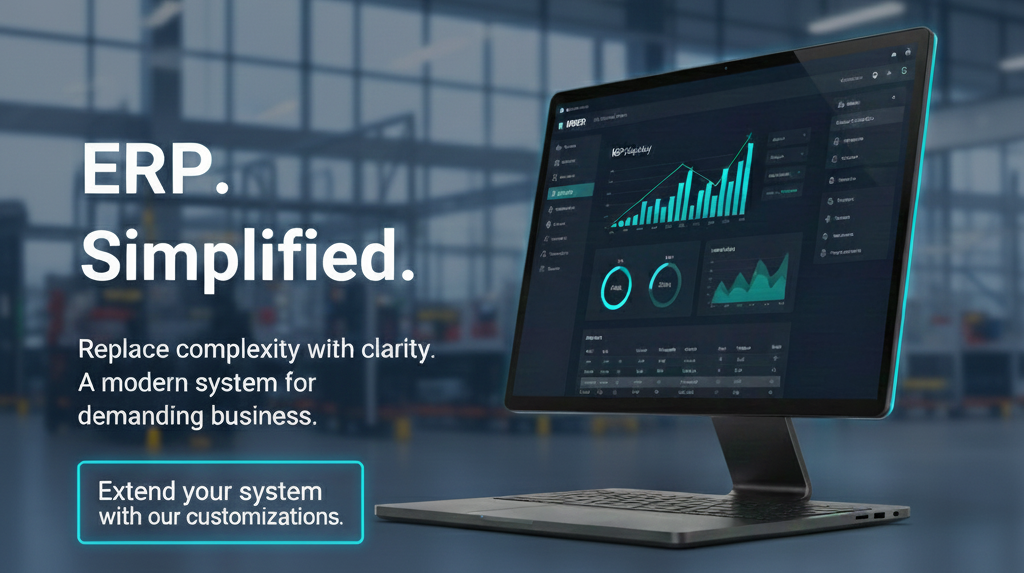Executive Summary: The Strategy for Success
- Data Integrity First - Establishing a «Clean Core» strategy where data governance prevents the migration of legacy errors.
- Business-Led Validation —-Shifting UAT from a technical checkbox to a rigorous business process validation.
- Standardization Over Customization — Leveraging native IFS Cloud Workflows to reduce technical debt.
- The «Book of Rules» — Implementing a living governance document for configuration standards and security roles.
- Role-Based Enablement — Delivering process-centric education, ensuring user adoption and minimizing friction.
- Realistic Resource Allocation — Dedicating subject matter experts to the project rather than relying on part-time availability.
- Post-Go-Live Sustainability — Planning for «Hypercare» to manage the productivity dip following the initial launch.
Embarking on an ERP transformation is one of the most significant undertakings for any enterprise. While the marketing brochures promise seamless integration and instant ROI, the reality on the ground is often starkly different. We have seen too many projects struggle, not because the software is incapable, but because the implementation strategy ignores the fundamental laws of ERP gravity. The brutal truth is that success in IFS Cloud requires a radical shift in mindset regarding data, governance, and process adoption.
The Silent Killer Is Dirty Data
The single most common reason for project delays and budget overruns is the state of your legacy data. Many organizations underestimate the complexity of untangling years of duplicate records, obsolete part numbers, and inconsistent supplier information. If you migrate this chaos into your new environment, you are simply moving a mess from one system to another.
A successful strategy demands a rigorous focus on IFS Master Data management. You must establish a Data Domain Map early in the project to identify the owners of every data set. This allows you to define what constitutes a «Golden Record» and ensures that only clean, validated data enters the production environment. Tools like the IFS Data Migration Manager are essential here, but they are only effective when paired with a strong data governance policy.
The «Book of Rules» Is Non-Negotiable
One concept we enforce strictly is the creation of an IFS Book of Rules. This is not just technical documentation. It is a strategic constitution for your ERP environment. Without it, your system will quickly degrade into a patchwork of ad-hoc configurations and inconsistent settings.
Your Book of Rules should explicitly define the following parameters:
- Naming Conventions — For all custom objects, permission sets, and reports.
- Modification Policies — Dictates when to use configuration versus customization.
- Security Standards — Detailing how to grant reports to permission sets in IFS Cloud and manage Segregation of Duties (SoD).
- Workflow Governance — To control the deployment of IFS Cloud Workflows and automation logic.
Maintaining this document requires a regular Governance Cadence where key stakeholders review system changes and ensure alignment with the original design principles.
Process Adoption vs. Legacy Replication
A frequent trap is the desire to make IFS Cloud look and behave exactly like the legacy system it replaces. This approach neutralizes the value of upgrading. The IFS SCM Pillar and other core modules are designed with modern best practices that streamline operations.
Instead of writing code to force the system into old habits, you should leverage IFS Business Process Automation. The IFS User Interaction Workflow capabilities allow you to guide users through complex tasks without breaking the core upgrade path. For example, rather than building a custom form for approvals, you can configure a workflow that triggers automatically based on specific data conditions. This keeps your system «evergreen» and easier to update.
The Role of the Expert Consultant
Selecting the right partner is critical. An IFS ERP Consultant should not just be a «yes man» who agrees to every customization request. You need a partner who will challenge your assumptions and push back when a request violates best practices.
True expertise means understanding the nuances of the platform. It involves knowing what is a multi-site planned part in IFS Cloud and how to configure IFS Cloud Permission Sets to protect sensitive data while enabling productivity. It also means having the foresight to plan for the «Valley of Death» that occurs post-go-live when user frustration peaks and productivity temporarily dips. A skilled consultant prepares you for this phase with targeted IFS UAT (User Acceptance Testing) scenarios that mimic real-world pressure, not just happy-path data entry.
Building Discoverability by Trust
User adoption hinges on trust. If users cannot find the reports they need or if the data looks wrong, they will revert to spreadsheets. You must ensure that IFS Crystal Reports and other analytics tools are correctly mapped and accessible.
We often see issues where users ask how do you grant reports to permission sets in IFS Cloud because the security model was designed by IT rather than the business. By involving process owners in the design of Permission Sets IFS Cloud, you ensure that access rights align with actual job functions. This transparency builds trust in the system and encourages users to rely on the «single source of truth» rather than their private data silos.
Conclusion
The path to a successful IFS Cloud implementation is paved with difficult decisions. It requires you to prioritize data hygiene, enforce strict governance through an IFS Book of Rules, and embrace standard IFS Workflows over custom code. By acknowledging these brutal truths upfront, you move from a high-risk project to a controlled, strategic transformation that delivers genuine business value.


